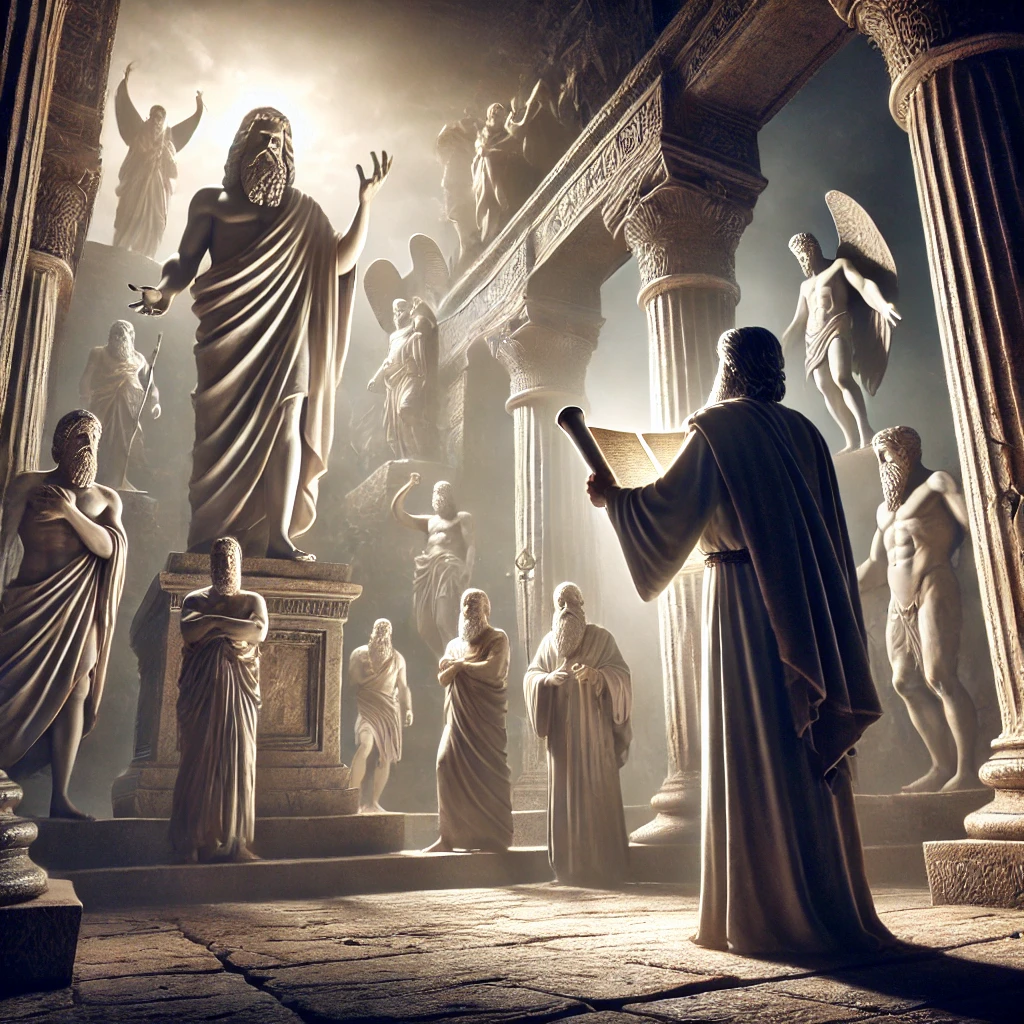The Bible’s stance on Greek mythology is a topic of intrigue for many scholars and believers alike. This article delves into the complex relationship between biblical teachings and ancient Greek myths, examining how Scripture addresses pagan gods, mythological stories, and their influence on early Christianity. We’ll explore key passages that reference Greek deities, analyze the apostles’ approach to Hellenistic culture, and consider the broader implications for understanding the Bible’s view on other religious traditions. Join us as we unravel the fascinating intersection of biblical truth and Greek mythology.
Greek mythology has long captivated the imagination of people around the world with its colorful pantheon of gods, epic tales of heroes, and profound moral lessons. However, for those who follow the teachings of the Bible, the question of how these ancient stories align with Scripture is both complex and thought-provoking. This article aims to shed light on the Bible’s perspective regarding Greek mythology, exploring the various ways in which biblical authors and early Christian leaders addressed the prevalent Hellenistic culture of their time. By examining specific passages, historical context, and theological implications, we’ll gain a deeper understanding of how the Bible views not only Greek myths but also other religious traditions that existed alongside early Christianity.
Biblical Perspectives on Pagan Deities and Idolatry
The Bible offers a clear and unequivocal stance on pagan deities and idolatry, consistently condemning these practices throughout both the Old and New Testaments. The first of the Ten Commandments explicitly states,
Comparing Creation Stories: Genesis vs. Greek Mythology
The Bible and Greek mythology offer distinct accounts of creation, each reflecting the cultural and religious beliefs of their respective origins. While the Bible says that a single, omnipotent God created the universe in an orderly fashion over six days, Greek mythology presents a more complex narrative involving multiple deities and primordial forces. These contrasting narratives provide fascinating insights into the worldviews and values of ancient civilizations, showcasing how different cultures sought to explain the origins of existence.
In the Biblical account, as described in the book of Genesis, God creates the world ex nihilo (out of nothing) through the power of His word. The creation process unfolds in a systematic manner, with each day bringing forth new elements of the cosmos:
- Day 1: Light and darkness
- Day 2: Sky and waters
- Day 3: Land, seas, and vegetation
- Day 4: Sun, moon, and stars
- Day 5: Sea creatures and birds
- Day 6: Land animals and humans
This orderly progression culminates in the creation of humanity, with Adam and Eve formed in God’s image and given dominion over the earth.
Greek mythology, on the other hand, presents a more chaotic and turbulent creation story. The Greek creation myth begins with Chaos, a primordial void from which emerged Gaia (Earth), Tartarus (Underworld), and Eros (Love). Gaia then gave birth to Uranus (Sky), and their union produced the Titans, including Cronus. The myth continues with a series of divine conflicts and successions, involving the overthrow of Uranus by Cronus, and later, Cronus by his son Zeus. This tumultuous narrative reflects the Greeks’ understanding of the world as a place of constant change and struggle.
| Aspect | Biblical Creation | Greek Mythology |
|---|---|---|
| Creator(s) | One God | Multiple deities and primordial forces |
| Process | Orderly, systematic | Chaotic, conflictual |
| Timeframe | Six days | Undefined, spanning generations of gods |
While these creation stories differ significantly, they both serve to address fundamental questions about existence and humanity’s place in the cosmos. The Bible‘s account emphasizes the sovereignty and intentionality of a single Creator, highlighting humanity’s special role as stewards of creation. Greek mythology, conversely, portrays a world born of cosmic forces and shaped by the often-capricious actions of multiple deities, reflecting a worldview that sees nature and human affairs as inherently unpredictable and subject to divine whims.
The Influence of Greek Culture on Biblical Times and Texts
The influence of Greek culture on Biblical times and texts is a fascinating subject that reveals the intricate interplay between ancient civilizations and religious traditions. As the Greek empire expanded under Alexander the Great, Hellenistic culture spread throughout the Mediterranean region, including areas where the events of the Bible took place. This cultural exchange had a profound impact on the language, philosophy, and literary styles found in various Biblical texts, particularly in the New Testament.
One of the most significant influences of Greek culture on the Bible was the adoption of the Greek language. The New Testament was originally written in Koine Greek, the common language of the Hellenistic world. This linguistic shift allowed for the spread of Christian teachings beyond Jewish communities and facilitated the translation of Hebrew scriptures into Greek, known as the Septuagint. The use of Greek not only broadened the audience for Biblical texts but also introduced new philosophical concepts and literary devices that enriched the expression of religious ideas.
Greek philosophical concepts also found their way into Biblical writings, particularly in the wisdom literature and the Gospel of John. The concept of the Logos, or divine reason, which appears in John 1:1, has roots in Greek philosophy and was used to bridge the gap between Greek and Jewish thought. Additionally, the Hellenistic period saw the development of apocalyptic literature, which incorporated elements of Greek cosmic speculation into Jewish and Christian eschatology.


